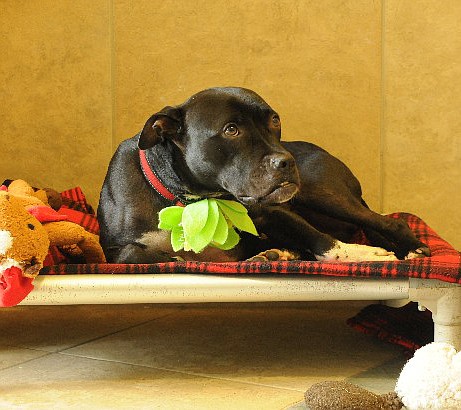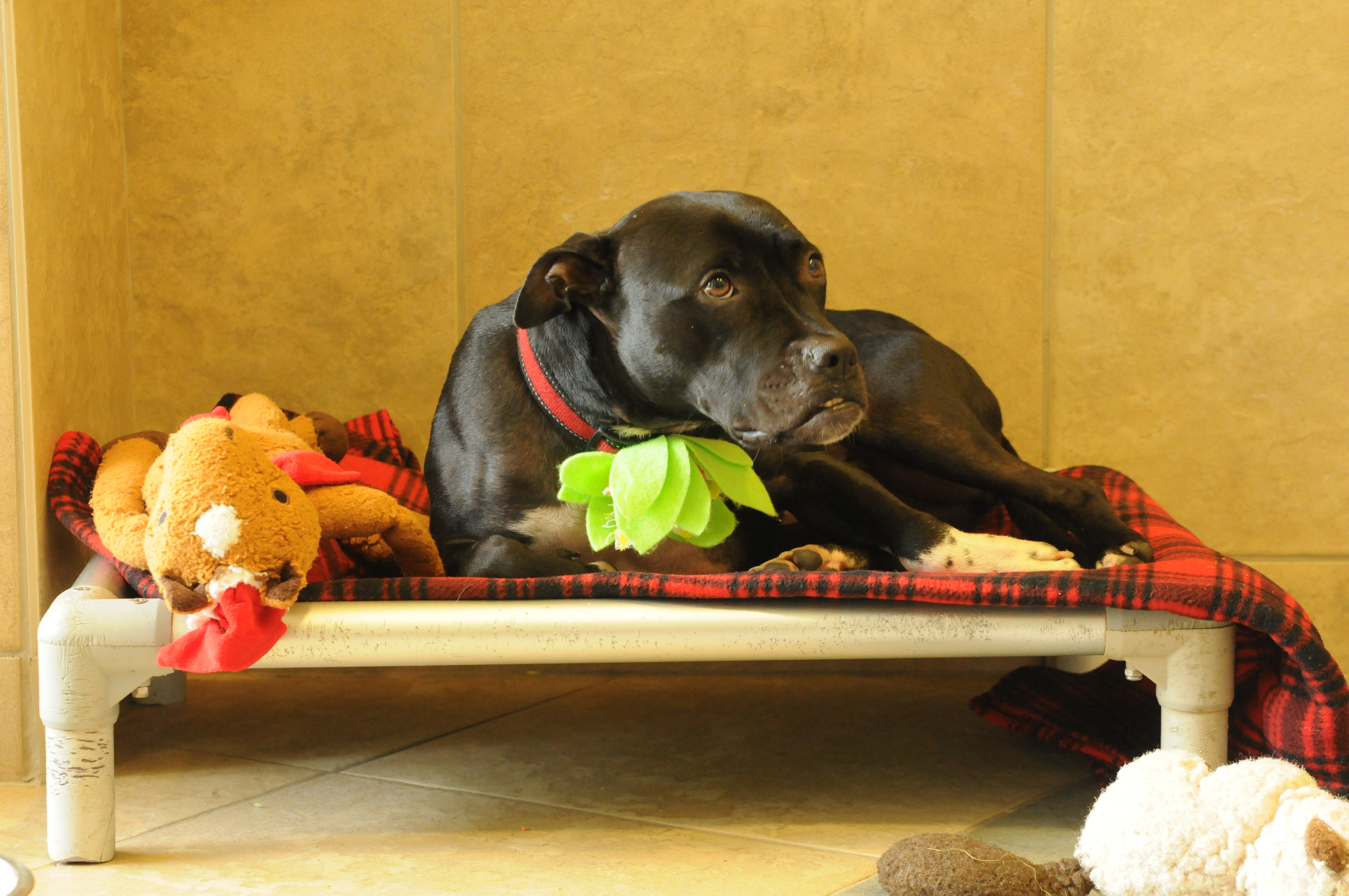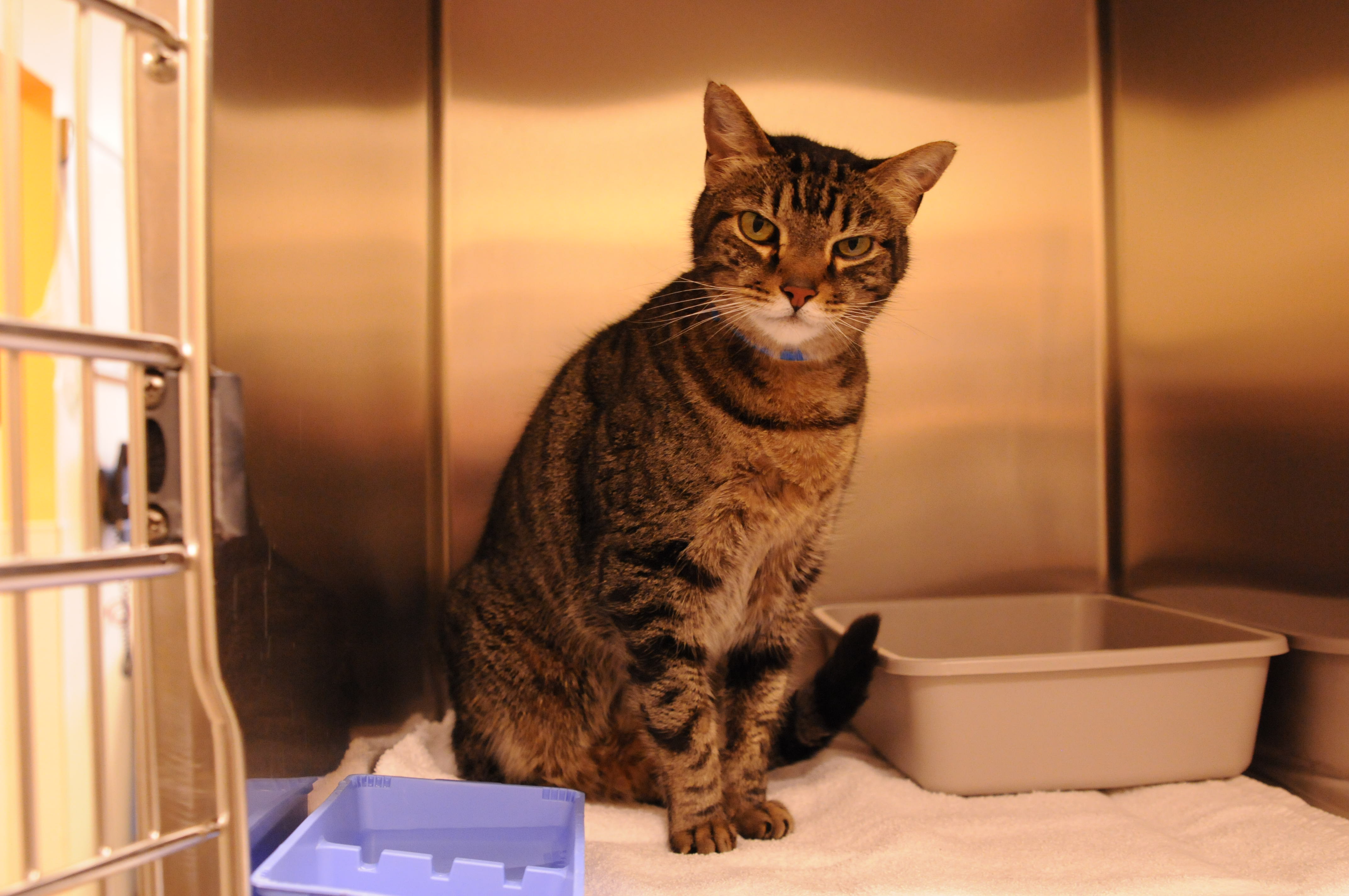Macy is a lucky dog.
It was Thanksgiving 2009 when she was discovered wandering the streets of Chattanooga in pouring rain. Cold and alone. Nowhere to go.
But before day's end, Macy, who is believed to have been at least four years old at the time but already had lost most of her teeth, would be warm, fed and, most importantly, loved. A mix of a Labrador retriever, German shepherd and husky, she would have a forever family.
"She was very shy and reserved, but after a brief time, she blossomed into the sweetest, most affectionate dog I've ever had," says Macy's owner, Caroline Johnson of Chattanooga. "She's friendly, social, completely house trained, and our entire neighborhood knows and loves her.
"I wish we could learn her story. We'll never know the tragedy that occurred in her life that left her in such dire straits, but we can't imagine our lives without her now."
Unlike Macy, many older dogs and cats in shelters don't find forever homes.
"Most people are looking to adopt a younger pet, so the older ones do get looked over," says Tricia Sebes, animal care coordinator at McKamey Animal Care and Adoption Center.
"At McKamey, we reduce the adoption fee by half on senior pets (8 years and older) to encourage people to adopt them," Sebes says. "Actually, if you are a senior human (65 years and older), you can adopt any animal at McKamey for half of the regular adoption fee, so if you are a senior adopting a senior pet, your adoption is free."
Sebes says around 10 percent of the animals at McKamey are older than 8. But in a nice bit of synchronicity, the shelter's oldest dog, 9, and oldest cat, 12, moved to "forever homes" last week, Sebes says.
"Personally, it is more difficult for me to see a senior animal surrendered by his owner than to see a stray dog come in off of the street," she says.
There are advantages to adopting a senior dog, she says.
"If someone is interested in adopting a dog that has house manners, adopting a senior is a good choice," she says. "Many times they are already house trained, they have surpassed the chewing phase, and they have basic manners."
Justin Scally, national director of emergency services for the American Humane Association, said in a recent interview on today.com that "senior animals often represent the highest-risk population in shelters, even though they tend to be the calmest, easiest pets -- and they're already house-trained.
"The most difficult part about older pets in shelters is that many have gone from a comfy couch to being stressed in a dog kennel," he says.
Photographer Lori Fusaro of Los Angeles is working on a book "Silver Hearts" that will feature photographs of older dogs. Proceeds from the book will be given to rescue organizations that save aging dogs, according to an Associated Press article.
The idea for the book was sparked on the day in June 2012 that Fusaro was at an LA shelter to photograph old dogs. The 44-year-old had always avoided adopting older dogs because she didn't think she could handle it when they died. But then she saw Sunny, a 16-year-old pit-bull mix.
Fusaro adopted Sunny that day.
"No old dog should be left to die alone, unloved and brokenhearted on a concrete slab in a strange place," she told the AP.
Eileen Price, executive director at Wally's Friends, a clinic in Red Bank that offers low-cost spay/neuter for dogs and cats in Hamilton County and surrounding rural counties, says some people abandon older pets either by having them euthanized before their time or disposing of them at a shelter during their golden years, she says.
"We receive calls every day from people wanting to dispose of animals for various reasons, and especially once they are elderly," she says. "Older animals are treasures and should be cared for to the end of life, but most often are not. Our disposable society all too often has no place for the elderly. We see that in human relatives all too often as well.
"A person who adopts an older pet typically is a person who has the wisdom to look at the animal for its individual personality, a higher-caliber person who wants a true companion, regardless of age," Price says. "The truth is that age is most often, if not always, a consideration when humans adopt an animal due to human fear of our own mortality. Humans want something that is going to last longer and not cause them to grieve when the animal becomes ill or dies.
People who adopt older animals are most often more mature, confident people or people who enjoy a more-relaxed lifestyle."
Jeanine Cloyd, volunteer and community outreach manager with the local Humane Educational Society, has seen that older animals are often adopted by older folks.
"But once in a while we get a young person or young couple interested in helping an older animal," Cloyd says. "But it's important that they understand the financial responsibilities that come with an older animal. We talk to them to make sure they are prepared for the possibility of extra medical expenses."
Price says her first dog when she was a child was a senior animal.
"She was a pudgy white Chihuahua named ChiChi," Price says. "She was 10 years old when we got her and lived to be 15. The previous owner was going to turn her in to the shelter because she was old. She trotted around our house as if she owned it and slept at the foot of my bed.
"Since that experience I have always tried to explain the value of saving a mature animal, as I truly believe it teaches children stability, strength and compassion. Too many people are afraid of how a child will be affected if an animal dies, rather than the natural joy of giving that senior a new lease on life."
When it comes to adoptions, a general rule of thumb is that older purebred and small-breed animals are more likely to get adopted than larger mixed breeds, says McKamey's Sebes. About 25 five percent of animals that come into shelters are purebred, she says.
Price says that older pure-bred animals aren't necessarily more adoptable than the older mixed breeds.
"Older pure-bred animals are often the ones that age more quickly, especially when considering the size and specific breed," she says. "Many pure breeds are currently bred in poor conditions by indiscriminate breeders.
"In sheltering, there are so many mixed breeds that are full of personality and life that pure-bred animals are often passed by, especially if they are older," Price says. "I think that older large-breed dogs are almost impossible to adopt by the general population due to the fear of health decline."
Price says it is "shocking" how many golden retrievers, German shepherds, Labrador retrievers and other breeds are brought into Wally's Friends because of their age.
"They are actually in the best years of their lives," she says, adding that numerous breed-specific rescue groups have formed nationwide as a result.
Eight years ago, Heather Leigh Adcox of Chattanooga adopted 5-year-old Chloe, a Labrador retriever, from a "Lab" rescue in Knoxville.
"Chloe's parents were moving and couldn't take her," Adcox says. "I remember their little girl said, 'Chloe is the sweetest dog ever.' They all cried when she left with me. I knew I didn't want a puppy. I was looking for an older Lab that was out of puppy stage and that could get along with a cat.
"At the time, I was 28 years old. I was going out with my friends all the time and working full-time. I just didn't want a puppy, but I did want the companionship of a loving dog," she says. "Chloe fit right in the first night I brought her home. I was worried that, by missing her puppy years that our bond wouldn't be the same, but I knew on the drive home that wouldn't be an issue.
"My mom, who went with me to get her, even said, 'It's like she knows you're hers." And it really felt like that. Still does."
Contact staff writer Karen Nazor Hill at khill@timesfreepress.com or 423-757-6396.


